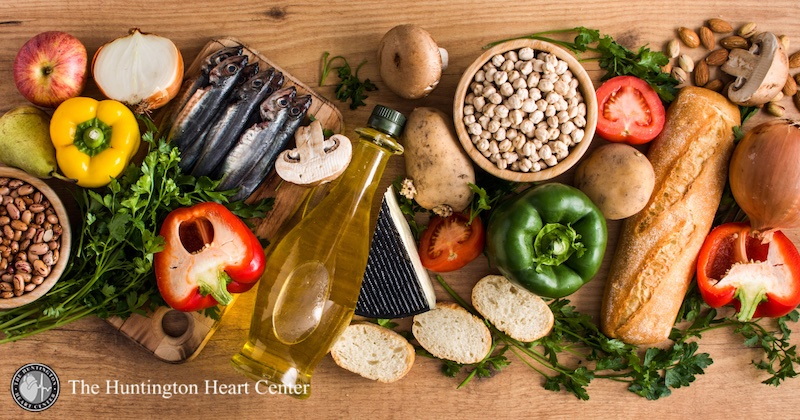Category Archives: Diet
What Does Heart-Healthy Food Labeling Mean?

The past several decades have seen an incredible shift in the food landscape in the United States. The rise of cheap and highly processed food has partly fueled obesity and metabolic disease, a crisis that we, as cardiologists, constantly contend with. Food companies have gone to great pains to label products as heart-healthy with guidance from the FDA that set specific rules about what can and can’t be labeled as healthy (first in 1994, and to be updated soon). Since 1995, the American Heart Association has offered similar guidance through its Heart-Check Certification program. But, are these labels informative, should they be followed, and is it enough?
Supplements as Part of a Heart-Healthy Regimen

Supplementation has become an ever-greater part of the collective psyche in the US. As dietary and lifestyle habits have changed, and more of us suffer from metabolic diseases due to excess weight, our understanding of bodily functions and vitamin and mineral interactions has improved. Are we on the right track, or have we taken it too far? Today, you can’t go to a big box store without seeing rows of supplements, from those we know well to obscure roots and herbs that we have difficulty pronouncing. With all the claims swirling around each of these supplements, do they have a place in maintaining cardiovascular health, or do they represent a Band-Aid for those looking for an easy way out? Continue reading →
Are Organic Foods Better for Your Heart Than Conventional Counterparts?

There has been a significant debate for years over the health benefits of organic foods. Organic means non-genetically modified, pesticide-free, natural foods. You can liken them to foods grown and raised the way our grandparents or great-grandparents would’ve been accustomed. Often organic foods are significantly more expensive than those grown conventionally because they are prone to many of the farming risks that conventional foods have been modified or sprayed to avoid.
Proponents say that organic foods help us avoid chemical toxicity and question whether genetic modification may affect long-term health. On the other hand, those who believe in modern, conventional farming point out that there’s no conclusive evidence that organic food is better than conventional. Further, conventional farming methods have made food more available worldwide.
Red Meat and Its Effects on the Heart
It’s a staple at virtually every American barbecue and get together – steak, burgers…red meat. In fact, Americans consume so much red meat that it is a contributory factor to the heart disease that we, collectively as a society, suffer from. But how exactly does red meat affect the heart and what do we need to do to help?

Red meat is very high in saturated fat. These are the bad fats that can eventually lead to heart disease. This is especially true for heavily marbled cuts. However, it is not only the composition of the red meat that matters, but it is also the portion sizes that we have become accustomed to. It’s rare to find a slab of meat weighing in at less than 8 ounces in a restaurant today. Be mindful that 3 to 4 ounces is a normal portion of protein. So even with the smallest steak on the menu, we are staring at double the amount of meat we should be eating.
Artificial Sweeteners vs Sugar – The Effects on Heart Health

When artificial sweeteners were first introduced, they represented a potentially revolutionary change in how we eat and drink. As our diets have worsened, one of the biggest culprits is increased sugar intake. Today men and women alike consume far more sugar than we should each day and this has led to a rise in obesity rates to epidemic proportions. Along with obesity comes a host of follow-on cardiovascular disorders including type two diabetes, high blood pressure, high cholesterol and more. Any of these issues can cause long-term heart damage up to and including a higher risk of heart attack and stroke and even long-term heart failure.
Does Omega-3 Supplementation Improve Heart Health?

It is well known that omega-3 fatty acids, a type of polyunsaturated fat, are critical for the function of many of our cells around the body, including in the brain. The benefits of omega-3 fatty acids extend to the heart and are protective against stroke as well. While we know this to be the case, there is some debate as to whether Omega-3s consumed as part of a healthier diet are any better than simply supplementing with one of the myriad pills available today.
Omega-3s have shown several benefits including lowering bread pressure, reducing triglycerides in the blood, reducing the risk of heart arrhythmias, reducing the risk of heart attack and stroke and lowering the risk of sudden cardiac death amongst other benefits.
How Salt Affects Your Blood Pressure
Before you reach for that salt-shaker at the dinner table, you might want to know what that extra sodium does to your blood pressure and overall heart health. Did you know that the daily recommended amount for salt is only about one teaspoon or less? And that it is likely already incorporated into your food without the assistance of a few shakes of salt? It is time to assess your salt intake and modify it to best suit your heart health.
Healthy vs. Unhealthy Cholesterol in Foods
Whenever you have a discussion about heart health, cholesterol levels are bound to come up. You will see headlines warning against high cholesterol levels, but what actually is cholesterol? What can you do in your daily life to decrease your chances of high cholesterol causing heart attack and stroke?
Hydration and Your Heart Health
It is no secret that proper hydration is essential to a properly functioning body – your heart is no exception. The human body is composed of 60% water, and the heart is over 70% water. Just that is enough to stress the importance of getting your body the proper amount of water.
Does the Mediterranean Diet Really Work?
The Mediterranean diet is touted as the solution to many of our dietary woes. But what is the Mediterranean diet, and does it really work? The Mediterranean diet is one that is rich in whole-grains, vegetables, lean proteins such as fish and chicken and good fats including olive oils and nuts. Importantly it avoids highly processed foods and while the Mediterranean diet may not be the lowest calorie option and while it may not have conformed too many of the diets that are touted by celebrities these days, the principles are solid.











